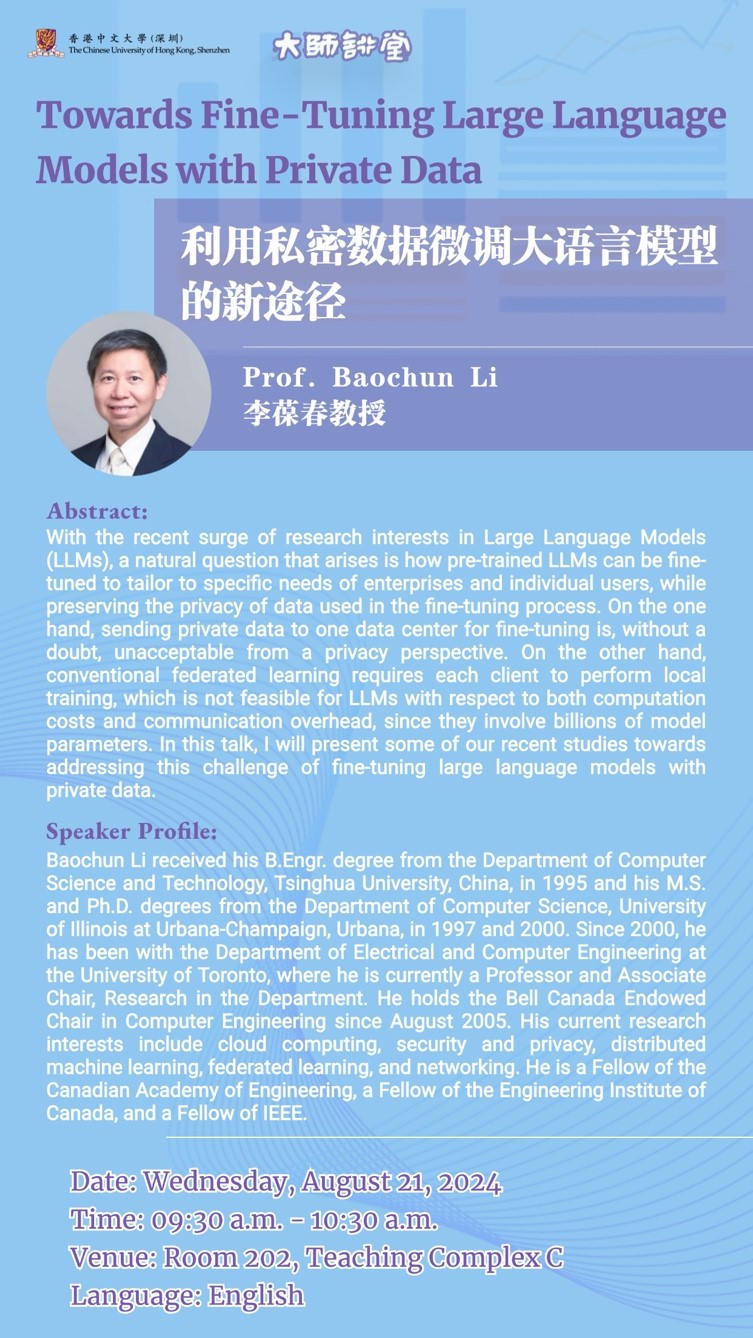【Master Forum】Towards Fine-Tuning Large Language Models with Private Data
Topic: Towards Fine-Tuning Large Language Models with Private Data
Speaker: Prof. Baochun Li
Date: Wednesday, August 21, 2024
Time: 9:30 a.m. - 10:30 a.m.
Venue: Room 202, Teaching Complex C
Language: English
?
Abstract:
With the recent surge of research interests in Large Language Models (LLMs), a natural question that arises is how pre-trained LLMs can be fine-tuned to tailor to specific needs of enterprises and individual users, while preserving the privacy of data used in the fine-tuning process. On the one hand, sending private data to one data center for fine-tuning is, without a doubt, unacceptable from a privacy perspective. On the other hand, conventional federated learning requires each client to perform local training, which is not feasible for LLMs with respect to both computation costs and communication overhead, since they involve billions of model parameters.
?
In this talk, I will present some of our recent studies towards addressing this challenge of fine-tuning large language models with private data. I will first present Titanic, a new distributed training paradigm that allows LLMs to be fine-tuned in a privacy-preserving fashion directly on the client devices where private data is produced, while operating within the resource constraints on computation and communication bandwidth. The key idea of Titanic is to partition an LLM across multiple client devices, so that it can be fine-tuned with no or minimal losses in training performance, and with a tradeoff in performance. In designing Titanic, we focused on its feasibility in real-world systems, and implemented a model-agnostic partitioning mechanism that is fully automated. In closing, we present a preview of our ongoing work on the use of multiple cloud platforms to perform distributed machine learning across geographically distributed data centers. This preserves the privacy of data as we ship training workloads to where data resides across the world. We envision a high-speed overlay network atop data centers, capable of relaying data across multiple paths while reacting nimbly against network changes with optimized policies.
?
?
Speaker Profile:
Baochun Li received his B.Engr. degree from the Department of Computer Science and Technology, Tsinghua University, China, in 1995 and his M.S. and Ph.D. degrees from the Department of Computer Science, University of Illinois at Urbana-Champaign, Urbana, in 1997 and 2000. Since 2000, he has been with the Department of Electrical and Computer Engineering at the University of Toronto, where he is currently a Professor and Associate Chair, Research in the Department. He holds the Bell Canada Endowed Chair in Computer Engineering since August 2005. His current research interests include cloud computing, security and privacy, distributed machine learning, federated learning, and networking.
?
Dr. Li has co-authored more than 470 research papers, with a total of over 26000 citations, an H-index of 88 and an i10-index of 341, according to Google Scholar Citations. He was the recipient of the IEEE Communications Society Leonard G. Abraham Award in the Field of Communications Systems in 2000, the Multimedia Communications Best Paper Award from the IEEE Communications Society in 2009, the University of Toronto McLean Award in 2009, the Best Paper Award from IEEE INFOCOM in 2023, and the IEEE INFOCOM Achievement Award in 2024. He is a Fellow of the Canadian Academy of Engineering, a Fellow of the Engineering Institute of Canada, and a Fellow of IEEE.

?





